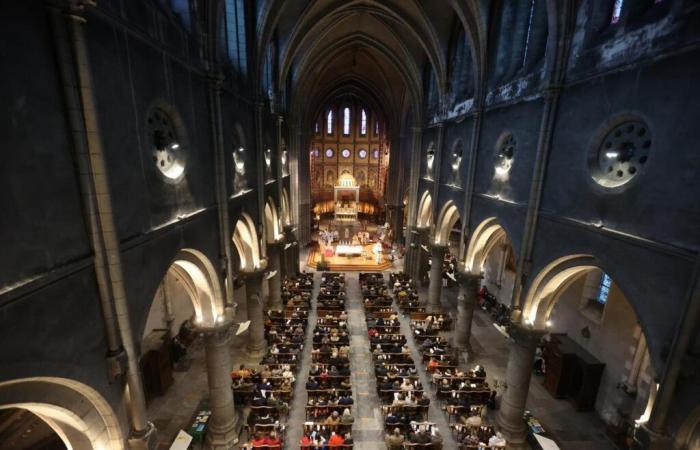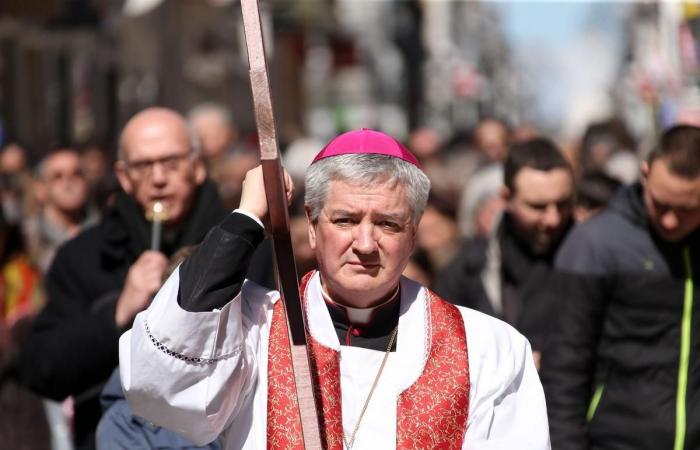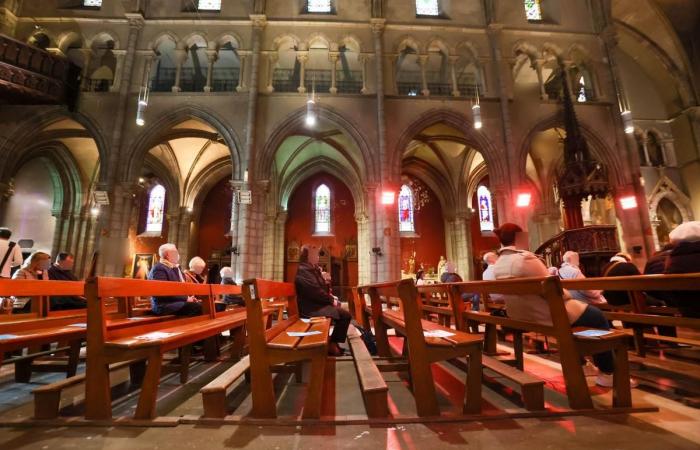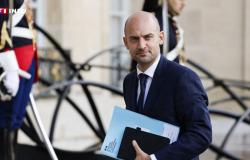The editorial team advises you
The editorial team advises you
We can particularly remember the revolt of around sixty priests at the end of 2016, who expressed their doubts and protests in a letter addressed to the ecclesiastical authorities. Without consequences so far for the prelate. “It’s even getting worse and worse” several parishioners tell us.
In recent times, they have not hesitated to speak directly to the Holy See in Rome. Vatican which thus received a good number of complaints, and enough to trigger a “fraternal” visit. Behind this qualifier, however, nothing friendly, but a serious audit of the situation of the diocese, as we wrote last spring.
Five months later, Mgr Antoine Hérouard, the Archbishop of Dijon who led the “fraternal visit”, explains his work to us, what he learned from it and what it could lead to.
Remind us what mission the Vatican entrusted to you?
It was the dicastery for bishops in Rome that entrusted me with this fraternal visit after a certain amount of information came back to the Vatican showing that there were potentially difficulties. The primary objective of my mission was to take a snapshot of the situation in the diocese, to have as fair a vision as possible. And on this occasion, I met the bishop, his collaborators, but also several faithful.
How did the meetings go?
I spent a week in the diocese twice, at the beginning of June then at the beginning of July. I was installed at the Carmel of Bayonne. To accompany me in the interviews, a nun from another diocese took the notes and provided secretarial assistance. The days were quite busy: seven interviews per day, lasting around an hour each. Three quarters of an hour where the person spoke freely.
Then we reread the notes, we corrected them if necessary. Once we agreed on the text of the statement, it was signed by the person, the secretary and me. However, I was not able to receive everyone. Otherwise, I would still be there or almost. But people were able to send me written statements. Some had done it spontaneously, when they learned of the visit. Others still continue and the file is gradually completed.
What did you learn from these discussions?
I learned that there are deep divisions in the diocese. Between people who appreciate their bishop, who find that he is a dynamic man, easy to access, who has a lot of initiatives, people who find themselves well in the proposals that are made by the diocese. And others, more critical, who find that there is an approach that is too clerical, too authoritarian, who do not always understand it at the liturgical level.
The question behind it is whether these are small incidents, and it is normal that in a diocese not everyone is satisfied with everything, or does this reflect a greater difficulty, which would no longer allow for ensure unity, communion?
In Pau, for example, several faithful are wondering how the Church can let a bishop put a traditionalist congregation at the head of the diocesan house.
In Pau, in fact, it is particularly marked. But the question of the Canons of Lagrasse, beyond what they are going to do, is, in a way, the straw that broke the camel’s back, which meant that, for a certain number of people, things were wrong.
You also received the main person concerned, the bishop. He was probably not surprised by the criticism against him?
Once all the interviews had been completed, we received the bishop, both to tell him what we had heard and to find out his point of view on the situation in the diocese. He did it for quite a long time (more than two hours, Editor’s note), and that’s normal. Mgr Aillet is a fighter. He is a person who has convictions and is not afraid to assert them. He knew the criticism against him. But once again, the key is to know what importance we give them and above all what they relate to.
Mgr Antoine Hérouard, Archbishop of Dijon.
DR/Diocese of Dijon
When did you submit your report and did you recommend any measures to be taken?
I submitted my report at the end of July. First of all, we find all the texts of the auditions. I also transmitted to the Vatican everything that happened to me by email or post. And for my part, I wrote conclusions, a summary of the questions we may have, over approximately 25 pages. I also recommend measures on certain points. But it was not an apostolic visit. We’re not there yet.
What decisions could then be made? And when?
There are several options. The dicastery for bishops, recipient of the report, is studying this. But before any decision, the prefect of the dicastery, Mgr Prevost, will meet Mgr Aillet in Rome, tell him the content of the report, and listen to him. He will also tell him the views of the Vatican, the reasons for concern, or not, that he has regarding the diocese. From there, he will see if Mgr Aillet wants to change certain things or if he considers that everything is pretty good as it is. Recommendations will follow at this stage. Unless we take immediate action, but there is no reason for that.
Could there be an apostolic visit?
If the Vatican deems it useful. This visit would then be made by two bishops (not me), to arrive at decisions. I did one in the diocese of Fréjus-Toulon (where Marc Aillet, then priest and then vicar general, worked, Editor’s note). Subsequently, there was the appointment of a coadjutor bishop in Toulon, that is to say a successor, but already with particular powers: it is he who currently manages the priests and the religious communities. Like a kind of guardianship. But we are not there in Bayonne.
When will we know?
The meeting with Mgr Prevost will undoubtedly take place by the end of this year. So we can expect decisions for the beginning of 2025.
Archives Nicolas Sabathier
Mgr Marc Aillet has been bishop of Bayonne-Lescar-Oloron since 2008.
Mgr Aillet says he remains mobilized in his mission
Asked to provide an update on this fraternal visit, Mgr Marc Aillet did not wish to speak “until the conclusions of this visit are known”, he replied. So far, the bishop has said very little, officially, about this audit. By reading his editorials on the diocese’s website, one can sometimes find, between the lines, responses to his opponents, notably that of November when he speaks of the “co-responsibility” of the mission of the Church, “of priests and the laity, who must stop being considered according to a logic of competition of powers.” But more specifically on the fraternal visit, he spoke more in an interview recorded on October 2 with Radio Lapurdi and Radio Présence Lourdes Pyrénées. “I live it in a very peaceful way, I am abandoned to the will of the Lord which passes through the will of the Church” said the prelate then. He confirmed having been received by Mgr Hérouard “who expressed to me the few reproaches which came from complaints which reached the Holy See. I was able to calmly answer questions in a meeting that lasted about two and a half hours. In a peaceful and fraternal climate.” Marc Aillet also indicates that he provided a written memorandum of 46 pages, not including annexes, which he addressed directly to the prefect of the dicastery for bishops, with a copy to the apostolic nuncio. The prelate said he rather expected recommendations from the Vatican, “it would take something very serious for an apostolic visit to be triggered. But I don’t have the impression that these are very serious things even if we have to hear the little things that are said.” Finally, while awaiting the decision, he indicated that he would not be demobilized. “I am in my vocation, in my mission. With my faults, which exist. That I can take advantage of this visit to question myself is all the benefit for myself and for the diocese. »
“If we are not heard, the hemorrhage will continue, the Church will lose faithful”
Among the parishioners who alerted the Vatican, there are the Catholiques 64 collective and several faithful from Pau. They hope this visit will lead to change.
Archives/Illustration Nicolas Sabathier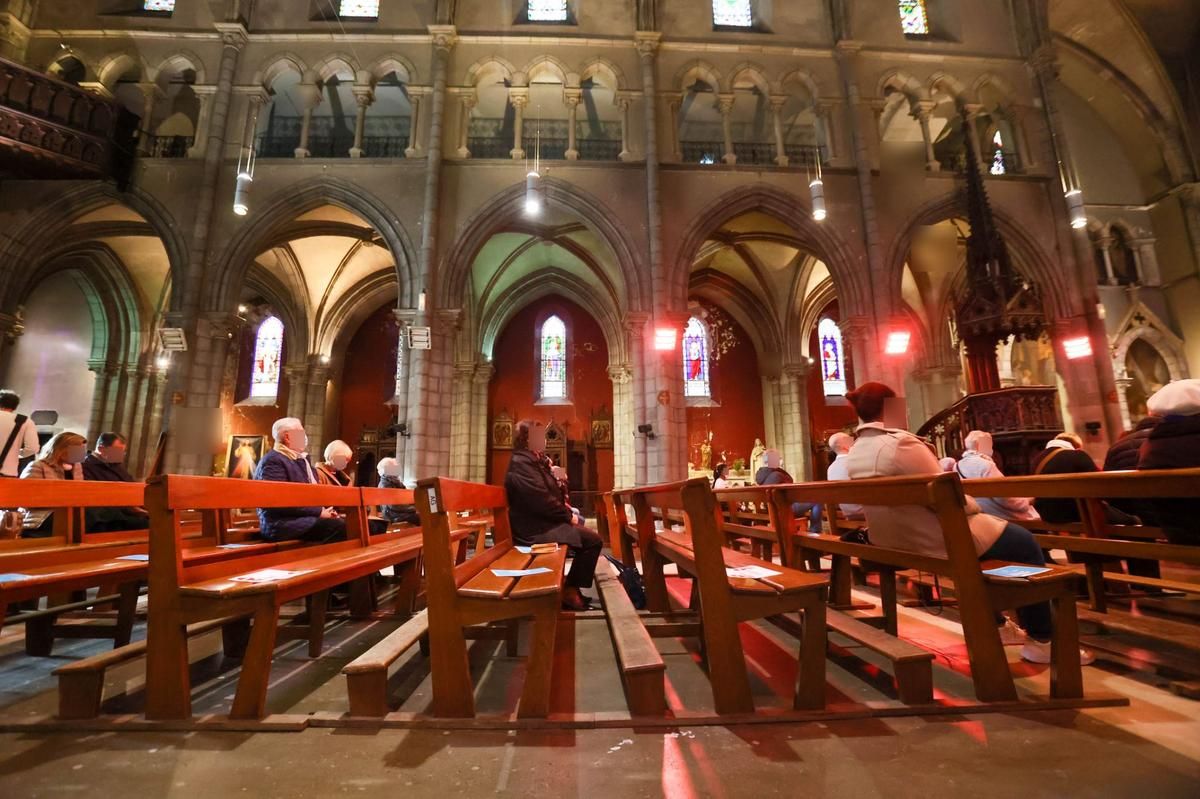
Several faithful denounce the governance and positions of the bishop.
“There is a real wait.” The faithful who denounce the Aillet governance, as good Christians, remain in hope. But their first hope, more down to earth, is to be heard by religious authorities.
This fraternal visit is a first sign, but it comes, according to them, after years of alert, letters sent to the Archbishop of Bordeaux, to the apostolic nuncio (the Vatican ambassador in France) or even to the president of the Conference of Bishops of France.
“Ultimately, it was the collective that made the difference, because until now, our individual letters were turned down,” notes a faithful person from Pau. This collective is Catholiques 64, born from opposition to the installation of the canons of Lagrasse in Pau, yet another traditionalist drift according to these parishioners, one too many, above all, which made it possible to bring together anger and indignation.
The editorial team advises you
There are already more than 400 of them, and that’s without counting the Basque groups who have also been fighting “for years” against Mgr Aillet’s methods. With the arrival of Mgr Hérouard, everyone was able, directly or in writing, to develop their grievances against the Bishop of Bayonne. “And some continue to do so. It is important because Mgr Aillet gives pledges on the form, but the substance does not change at all, quite the contrary” notes a parishioner from Pau.
In the viewfinder of these faithful, the “clericalism” advocated by the prelate, with lay people relegated very far away, “despite the words of Mgr. But it is the opposite of the Synod which is taking place in Rome, with a pope who says that everyone must take their place in the Catholic Church,” breathes another faithful.
And to deplore the exercise of priests “who have all the powers”, who, for some, “take themselves to be Christ himself… No wonder, that’s what we trained them for. Priests with this same profile, who we collect from all over France because of the personality of Mgr Aillet,” she whispers.
According to the collective, “the diocese is today fractured. Mgr Hérouard observed this. The presbyterium too, between those of the previous generation and those who are arriving.”
Keep Aillet until his retirement?
This is why expectations are high. “Either Rome hears what is being said, the suffering and the problems of the faithful, and wishes to put a stop to it, or the bleeding will continue. People will leave, if they have not already done so, the Catholic Church because they no longer recognize themselves in it.”
The collective believes that if the outcome of this visit is limited to recommendations, “it will be of no use. The bishop will do as he pleases.” As for a departure of the prelate, or the appointment of a co-adjutor, some wish it, like the Basques of the Aintzina Xutik group. “But who would want to take over a diocese in this state… And where would Mgr Aillet go? I fear that we will have to keep her until she retires, that is to say for another eight years,” adds a faithful Pau resident, without wishing it.
As for the serenity displayed so far by the prelate, the collective doubts it. “If he was that peaceful, if he had nothing to reproach himself for, that perhaps did not justify a 46-page memoir from him. Nor such an uproar undertaken with letters of support which were in reality only the copy and paste of a basic letter established by the diocese itself” argue the opponents of the bishop.
However, they say they “remain in confidence in the Catholic Church”.

